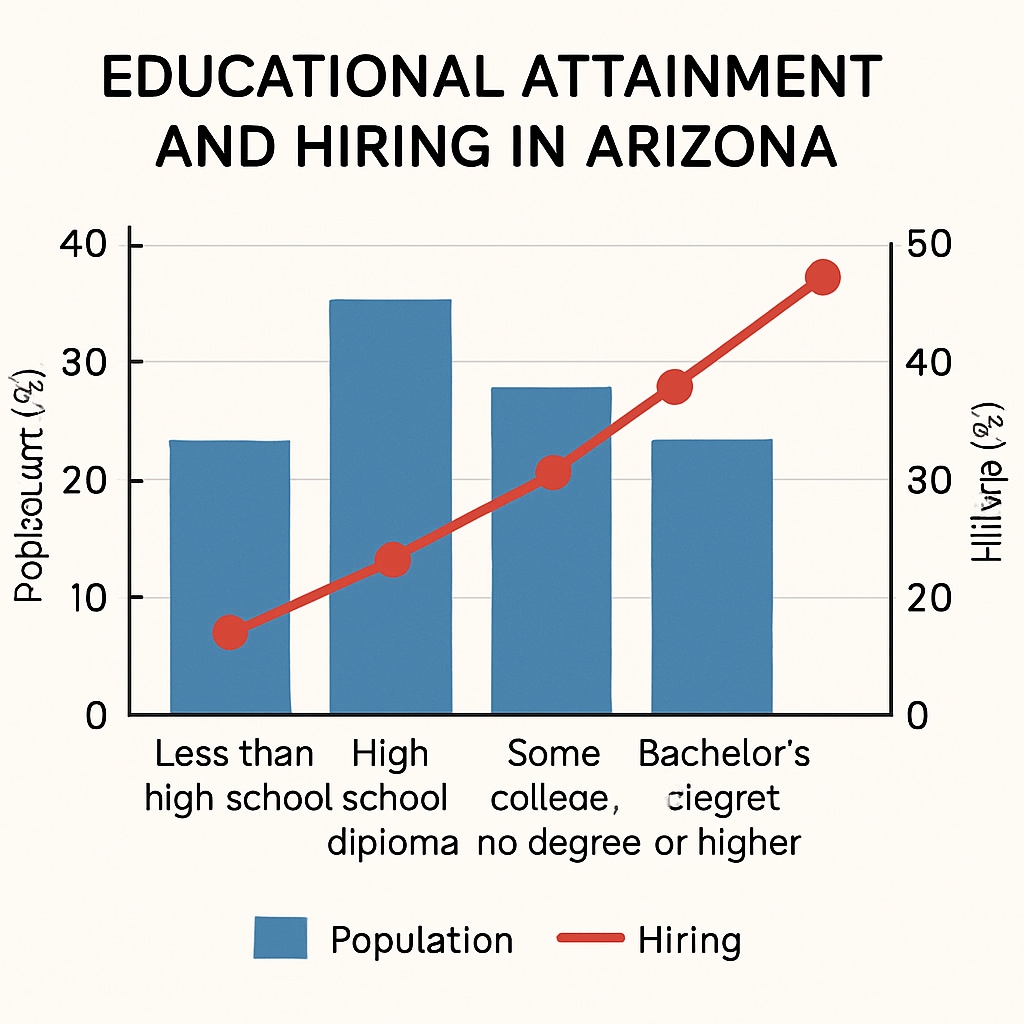In recent years, Arizona government agencies have faced criticism for their employment policies, particularly regarding educational requirements. The issue revolves around cases where job applicants possessing higher education degrees have been disqualified due to the absence of a high school diploma. This peculiar scenario has brought attention to the state’s hiring practices and raised questions about the value placed on different types of educational credentials. The controversy highlights a troubling paradox in Arizona’s employment policy and calls for a deeper examination of its implications on fairness and workforce development.

Understanding Arizona’s Education Requirements in Recruitment
Arizona’s recruitment policies emphasize a high school diploma as a mandatory qualification for many government jobs, regardless of whether candidates hold advanced degrees. For example, an applicant with a master’s or even a doctoral degree could be rejected if they lack proof of completing high school. This approach has led to debates about the logic behind such stringent requirements and whether they are appropriate in today’s job market.
The issue stems from rigid adherence to policies that prioritize traditional educational milestones. While high school education represents foundational learning, the exclusion of candidates based solely on this criterion undermines the value of higher education achievements. This approach raises concerns about employment discrimination and the effectiveness of Arizona’s hiring standards.
The Broader Implications of Credential-Based Disqualification
The practice of favoring high school diplomas over advanced degrees highlights broader systemic issues. It suggests a rigid and outdated view of educational progression that fails to recognize the variety of paths individuals may take to advance their knowledge and skills. For instance, candidates who pursue alternative education routes, such as GED certifications or direct entry into higher education, may find themselves unfairly excluded.
Such policies not only restrict opportunities for well-qualified candidates but also risk sending a discouraging message about the importance of higher education. It creates a paradox where the pursuit of advanced qualifications becomes secondary to meeting traditional benchmarks, potentially jeopardizing Arizona’s ability to attract top talent.

Reevaluating the Value of K-12 Education in Employment
While the emphasis on high school diplomas highlights the importance of foundational education, it also brings into question how K-12 education is perceived in the broader employment landscape. Is a high school diploma truly the most critical indicator of an applicant’s qualifications? Or should hiring policies evolve to focus on skills, experience, and higher education achievements?
Arizona government agencies must consider revising their standards to align with modern workforce demands. By adopting a more flexible approach, recruiting practices can embrace a wider pool of candidates, ensuring fairness while maintaining the integrity of public service roles.
For example, integrating skills-based assessments could provide a more comprehensive view of an applicant’s capabilities. Additionally, acknowledging alternative educational pathways, such as vocational certifications or online degrees, could resolve the diploma-versus-degree conflict effectively.
Recommendations for Policy Reform
To address these challenges, policymakers in Arizona should explore several strategies:
- Modernize Hiring Criteria: Shift focus from rigid diploma requirements to a broader evaluation of skills, experience, and advanced education.
- Embrace Alternative Education: Recognize non-traditional educational achievements, such as GEDs, vocational training, and online certifications.
- Conduct Regular Reviews: Periodically reassess employment policies to ensure they reflect current education and workforce trends.
- Promote Transparency: Clearly communicate hiring standards to avoid misunderstandings and ensure candidates are aware of qualification expectations.
By implementing these reforms, Arizona can create a more inclusive and effective hiring system that values diverse educational experiences and prepares its workforce for future challenges.
As a result, addressing the diploma-versus-degree dilemma could strengthen Arizona’s reputation as a fair and forward-thinking employer while fostering a more competitive and diverse talent pool.


